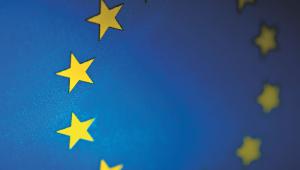The data suggested that Ukraine’s gross domestic product fell by 2%, but, according to an analysis by the UK Centre for Economics and Business Research, this was in line with consensus expectations about economic performance amid current public finance and political woes. Yesterday, Ukraine’s economic minister Anatoliy Maksiuta’s said he expected the economy to contract by 1% in Q1.
The CEBR noted that, even after the annexation of Crimea, the region was still included in this estimate.
‘Was Crimea to be excluded, the resulting reduction in GDP would likely be much larger – as much as 8% according to some commentators,’ said the British economic forecasters.
‘Whilst the country’s economic performance is disappointing it remains to be seen what recent economic reforms, intended to stabilise the country’s economy, can do to support Ukraine’s recovery.’
According to the CEBR, support for Ukraine should include changes in monetary and fiscal policy. It stated that a move from de facto fixed exchange rate to a floating exchange rate resulted in a devaluation of the Ukrainian Hryvnia currency against the US dollar of almost 40% to date.
It added: ‘This move is expected to increase the attractiveness of Ukrainian exports, as they become relatively less expensive. By making imports more expensive, however, the devaluation will also lead to an increase in inflation.
‘Price pressure will be elevated further by the recently announced hike in energy tariffs, as energy is primarily imported.
CEBR said it expected that the Ukrainian economy (including Crimea) would experience a total contraction of 1.9% in this year.
‘The recent, long overdue changes in monetary and fiscal policy are steps in the right direction. Yet, developments in Ukraine are currently subjects to high levels of volatility and uncertainty and the upcoming elections [next month] further add to this.’
Meanwhile, International Monetary Fund economist Antonio Spilimbergo said Russia was ‘experiencing recession now’ with its economy suffering from massive capital outflows over the Ukraine crisis.
Spilimbergo said the IMF had cut Russia’s 2014 growth forecast from 1.3% to 0.2% and expects $100bn to leave the country this year. He said sanctions were weighing very negatively on the country’s investment climate.












